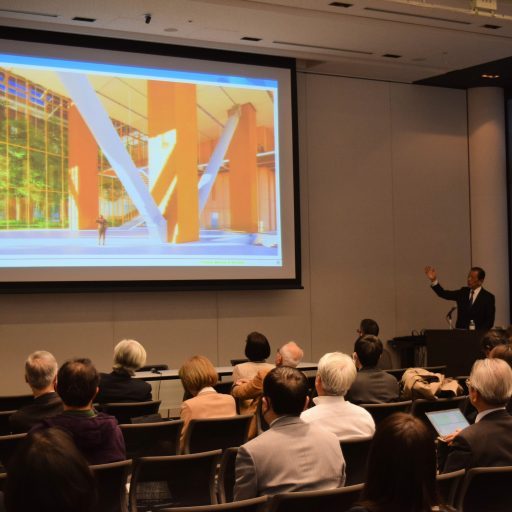Project Assistant Professor, GSID, Nagoya University
Alla OLIFIRENKO
Last month, we held a seminar titled “Regional Possibilities and Challenges Toward Carbon Neutrality” at Nomura Conference Plaza Nihonbashi in Tokyo.
The event gathered over 90 participants from academia, industry, and local governments, reflecting the growing interest in and urgency of sustainable regional development and energy transition.
The full program of the symposium can be assessed through the link.
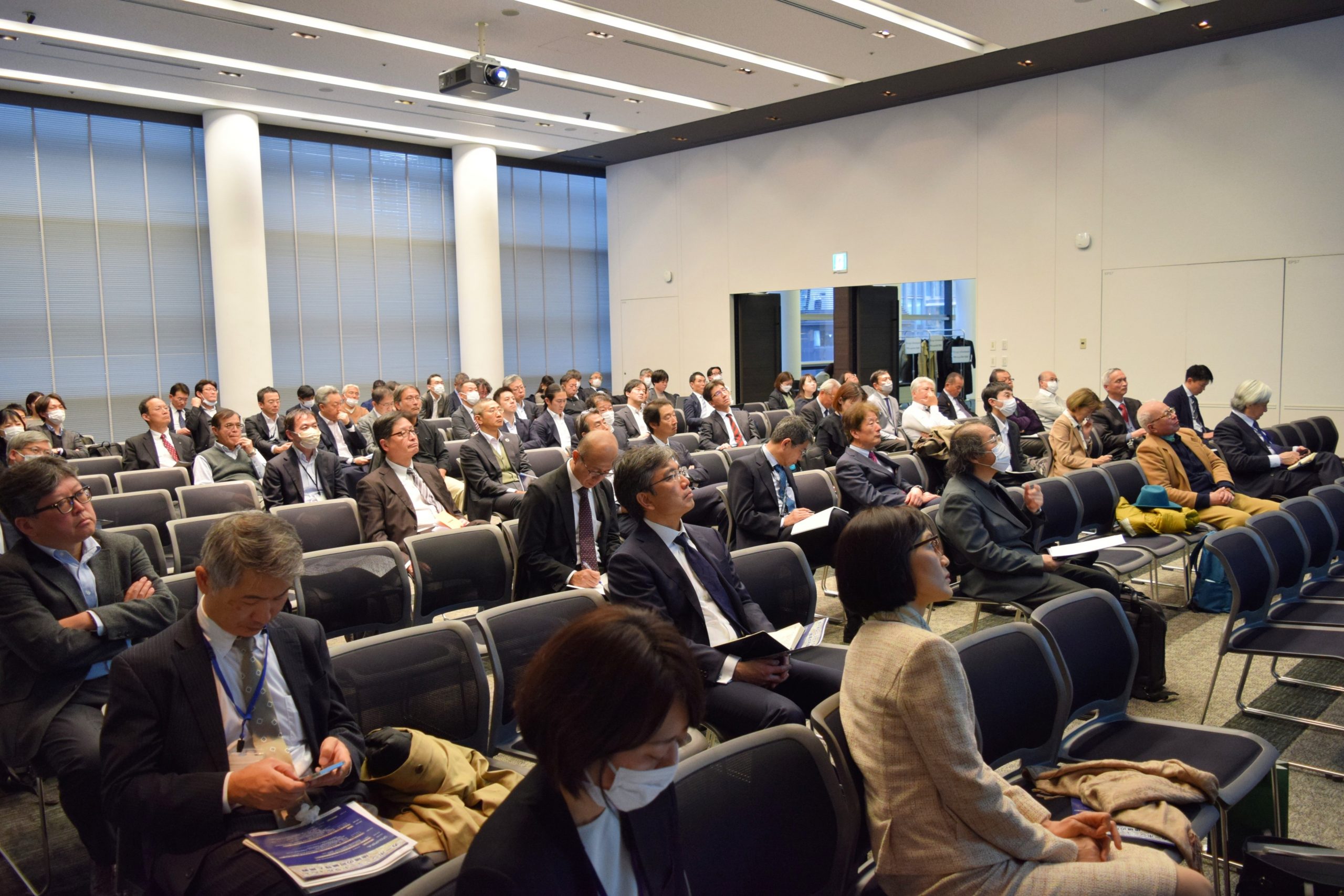
The seminar opened with remarks from the H2Governance project leader, Tomoko Ishikawa (Professor, Graduate School of International Development, Nagoya University).
The keynote speaker of the seminar was Shuzo Sumi, Chairman of the Board of Tokio Marine Holdings Inc. Japan, Chair of the Advisory Committee for Natural Resources and Energy of the Ministry of Economy, Trade and Industry of Japan, and Chair of the “Wood Change Council”, a group dedicated to “creating environment conducive to the use of wood”, at the Ministry of Agriculture, Forestry and Fisheries. His presentation, entitled “Revitalizing Japan’s Forestry Sector and Creating a Regional Circular Economy”, highlighted the importance of sustainable forestry for climate and human well-being. He emphasized that active use of wood as a raw material is a vital part of the forest revitalization cycle, keeping the forests young and healthy while providing numerous benefits for climate and human well-being. He drew attention to the fact that wood, contrary to a popular belief, can and is being effectively utilized even in modern large-scale architecture, so wood should make a return as a staple in construction industry supply chains.
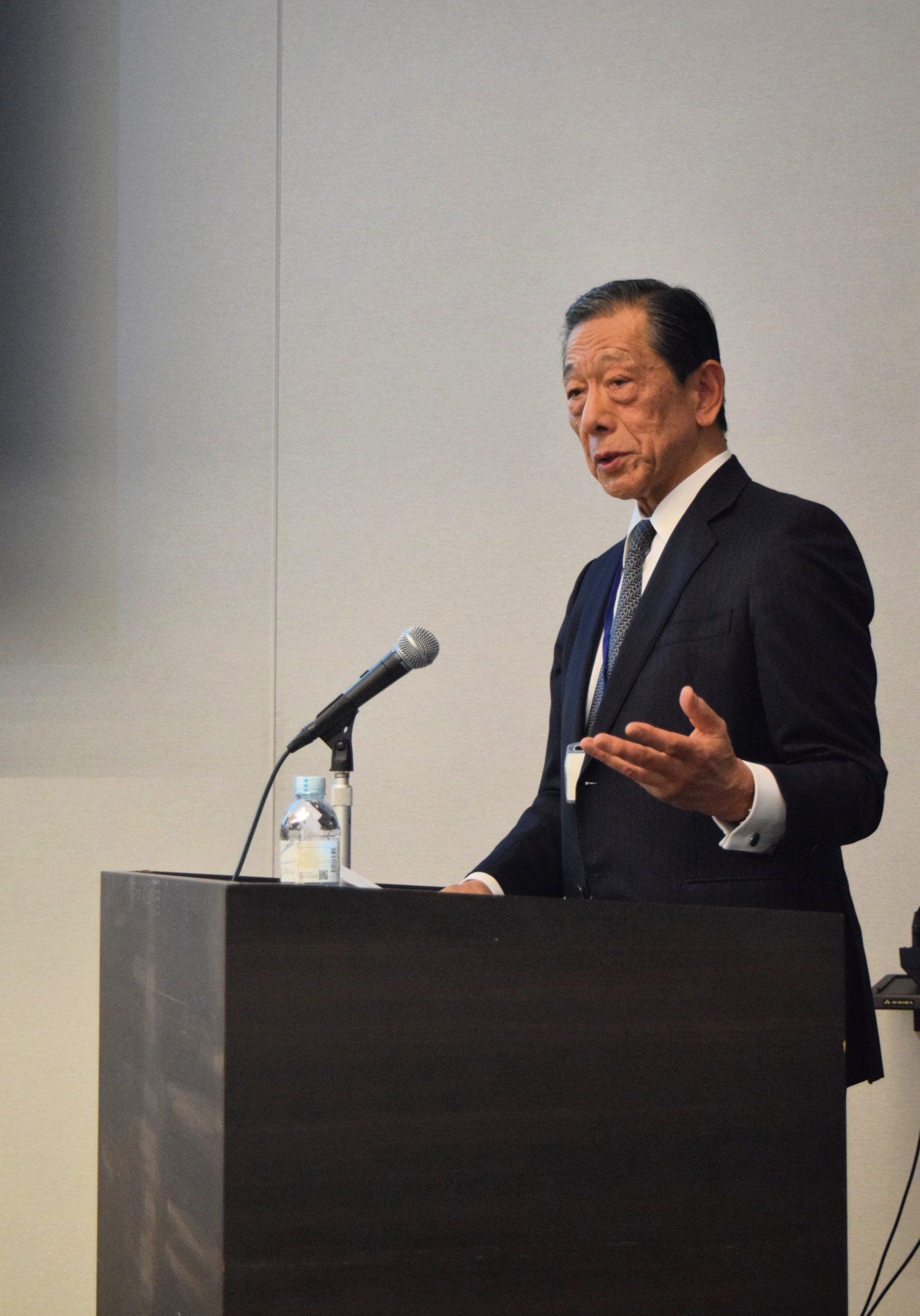
The keynote speech was followed by two panel discussions.
In Panel 1, “Recent Legal and Practical Developments in Regional Revitalization and Implications for the Energy Transition” (Moderator: Hiroshi Maeda, Visiting Attorney, Mori Hamada):
- Tsuyoshi Arai, Professor at the Faculty of Commerce, Waseda University, discussed the implications of Japan’s Act on the Promotion of Cash Flow-Based Lending on regional revitalization and the energy-transition-related projects;
- Fumiyo Harada, Managing Executive Officer at the Development Bank of Japan, highlighted the prerequisites of success in simultaneous regional revitalization and energy transition processes, such as ensuring strong commitment of local stakeholders, adequate estimation of economic strengths and assets, developing multiple scenarios to account for the uncertainties in global energy transition developments, and others.
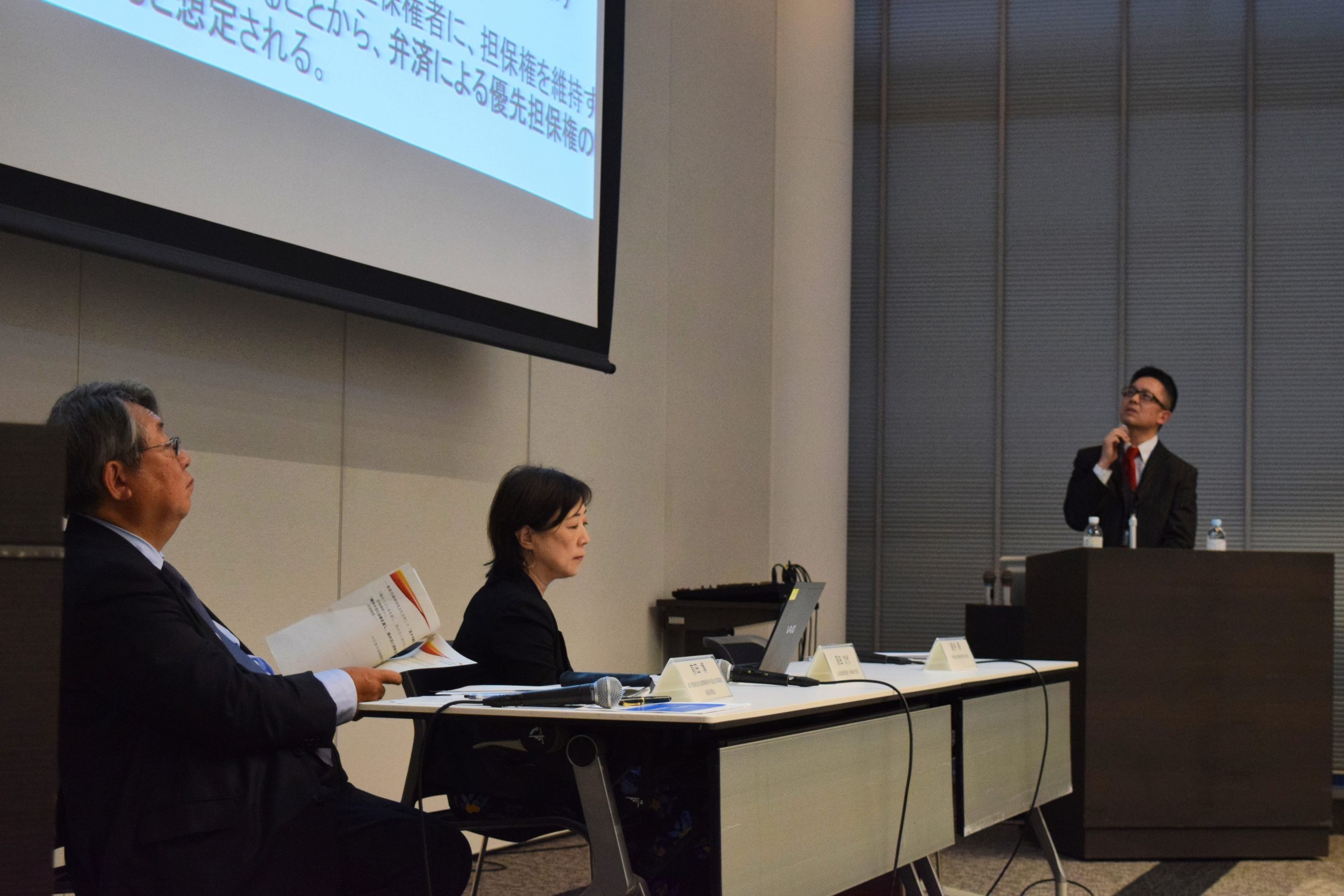
In the Panel 2, “Regional Initiatives for Carbon Neutrality” (Moderator: Munetaka Horiguchi, Assistant to the President, Mitsui & Co. Power Ltd.; Project Professor, Kyoto University):
- Keiko Zaima, President of Kyoto Sangyo University, shared her research on Kawasaki City’s Coastal Hydrogen Strategy, as a case study of combined efforts of local government and industry to reach carbon neutrality.
- Mihoko Shima, Partner Attorney at Mori Hamada and a Member of the Subcommittee on Decarbonized Fuel Policy of the Advisory Committee for Natural Resources and Energy in the Ministry of Economy, Trade and Industry of Japan, talked about the potential of the Hydrogen Society Promotion Act in supporting infrastructure development in Japanese regions.
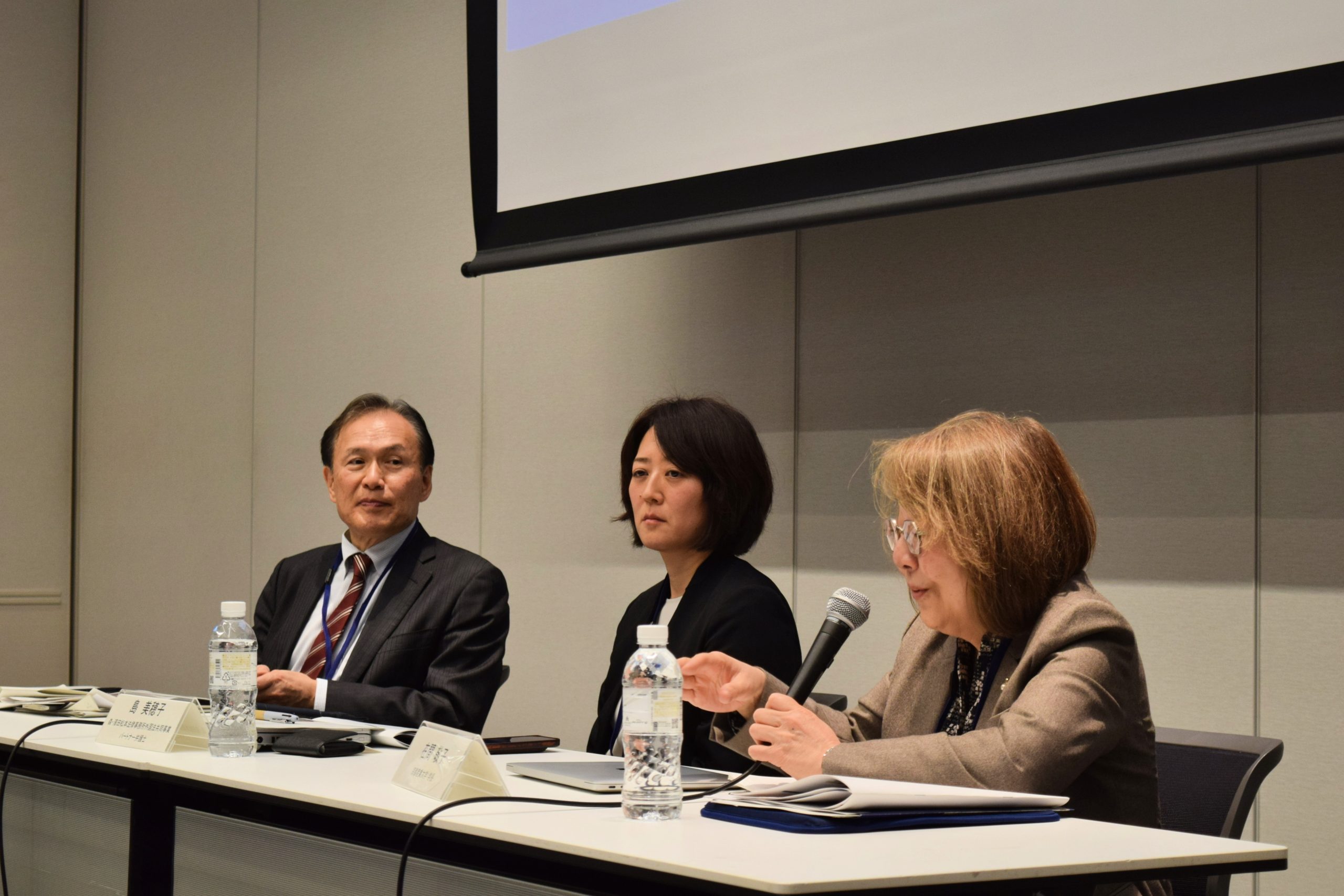
The closing remarks were offered by Kiichi Fujiwara, Professor Emeritus, The University of Tokyo.
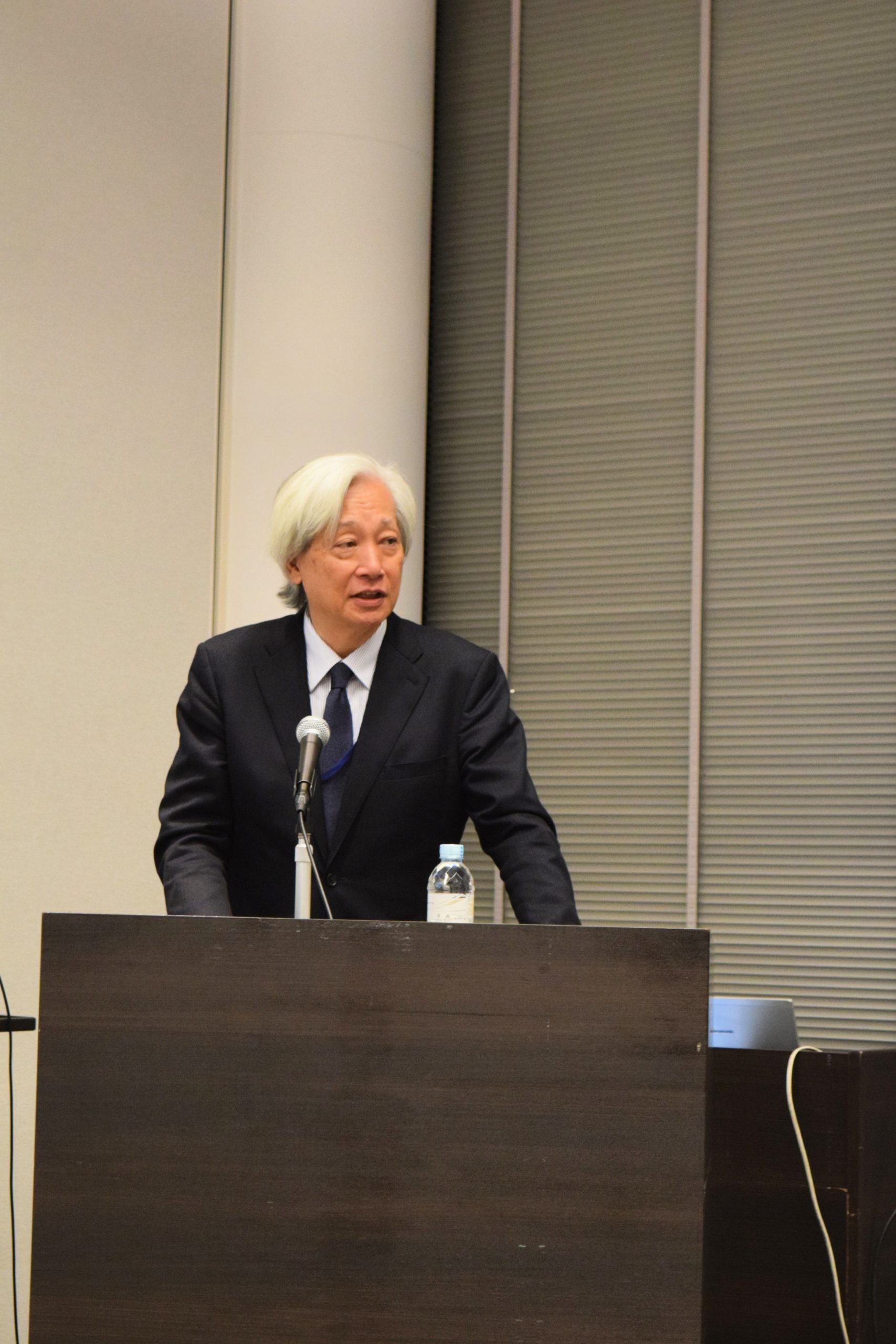
I was happy to see that the seminar gathered people from diverse backgrounds. There were representatives from national and local governments, enterprises both small and large, research institutions, think tanks, and private individuals. I was pleasantly surprised to once again meet the key players from our previous columns — Kawasaki City Office and Fukui Seisakusho.
This diversity is extremely important, as the energy transition is a communal effort. It cannot be achieved simply by pumping a different kind of fuel into a hermetic pipeline, nor is it something that occurs in isolation within industrial facilities. It is a process that affects society as a whole — one that requires the cooperation of all.
Think about the past: at the dawn of the electricity era, electrified communities gained enormous advantages over those still lit by candles and gas. Yet, the lack of communication and coordination among scientists, inventors, governments, manufacturers, workers, and consumers led to unexpected challenges — from fires caused by, what seem today, absurd safety oversights to a rise in labour strikes. But it would not stop the change from happening, and those late to adapt stayed behind.
Even if the modern energy transition may not match the revolutionary impact of electrification, it still brings significant industrial shifts and, consequently, profound effects on local communities — especially those built around energy-intensive industries. For this reason, local governments and citizens must take the initiative to align with and adapt to the transition as an inevitable change already underway.
As we saw in the seminar’s presentations, there have indeed been promising efforts, and legal frameworks are being developed to support such initiatives. Seeing so many people eager to learn about these developments and committed to sustainability practices fills me with hope. I trust that this seminar served as a platform to raise awareness of these interconnected issues and to foster connections among stakeholders across different regions.



